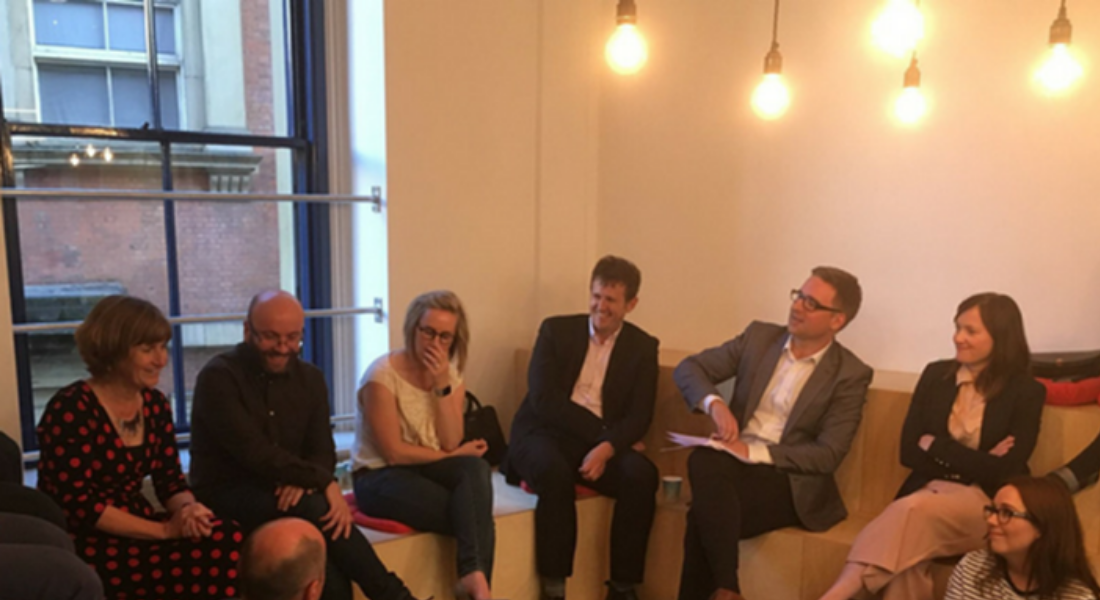Last week we held our first event that wasn’t directly related to the business of PR. Gender in Networking was organised by our own Lizzie Wood and its aim was to discuss whether there is still a place for single-gender events. Our panel was carefully balanced; as Fourth Day’s representative I was joined by Catherine Wilks of PWC, Philip Honour of Porter Novelli and Steve Kuncewicz of Slater Gordon. The event was chaired by Rupert Cornford, psychologist and former journalist at Carter Corson.
The issue of gender is pretty big in PR. We’re seeing more women running agencies, but many of the most senior industry positions are still held by men. In June of this year, at the PR Week Hall of Femme conference, Richard Edelman, eponymous CEO of the world’s largest independent PR agency, stated (as part of an all-male panel) that women just need to “speak up more,” doing little to promote the sector’s equality credentials.
In male-dominated environments it’s understandable that sometimes women feel the need to escape to a supportive group of their own gender to build up their confidence. Female representatives of the legal and engineering sectors in the room felt that this was practically a necessity for survival. One interesting point raised was the fact that some younger employees find age more of a barrier than gender – and prefer to network among a group of their peers rather than to face a room full people twice their age. None of the men present expressed any enthusiasm for male-only events.
Having established that there is a legitimate role for single-gender get-togethers, however, the conversation turned to the wider problem. To achieve a high enough level of understanding to effect change, we need both men and women in these discussions. But how? Currently, the people who really want to talk about gender equality are women, for the obvious reason that they are still in the losing position.
The word “gender” in the title of an event will automatically rule out almost all the people who would benefit most from understanding the problem. In spite of our best efforts to keep our event neutral, our own title inspired some strong reactions; one potential delegate felt that we had already set up an anti-feminist agenda, while a male member of the panel was concerned that he was going to be verbally attacked. He nobly turned up nonetheless. Tellingly, not one of the men in attendance had come because of our subject matter. Lizzie’s power of persuasion cannot be underestimated.
So what are we to do? One practical suggestion was to simply take action in the workplace by encouraging men to adopt those ‘perks’ that frequently undermine the status of women. Cathy Wilks explained how PWC is encouraging men to work flexibly and to make use of their shared parental leave, which is doing much to remove their stigma. It may also help to tackle the culture in which being “super-busy” and working 18-hour days is used to denote success.
This doesn’t help with the conversation, however. Encouraging mixed business socialising which avoids self-selecting themes such as golf, football or fashion is sensible but ducks the need to address the gender inequality question head-on. Discussion is important; if we can have discussions about vulnerability in the workplace that include everyone, men benefit too. Someone raised the important point that many men have concerns at work that they simply suppress. One comparison was made with mental health – a previously taboo subject.
This discussion can obviously be taken far wider to encompass inclusivity more generally – we didn’t even touch on trans- or non-binary gender for example. If you have views that you’d like to share with me, please drop me a line: xanthe@fourthday.co.uk
Share this:





